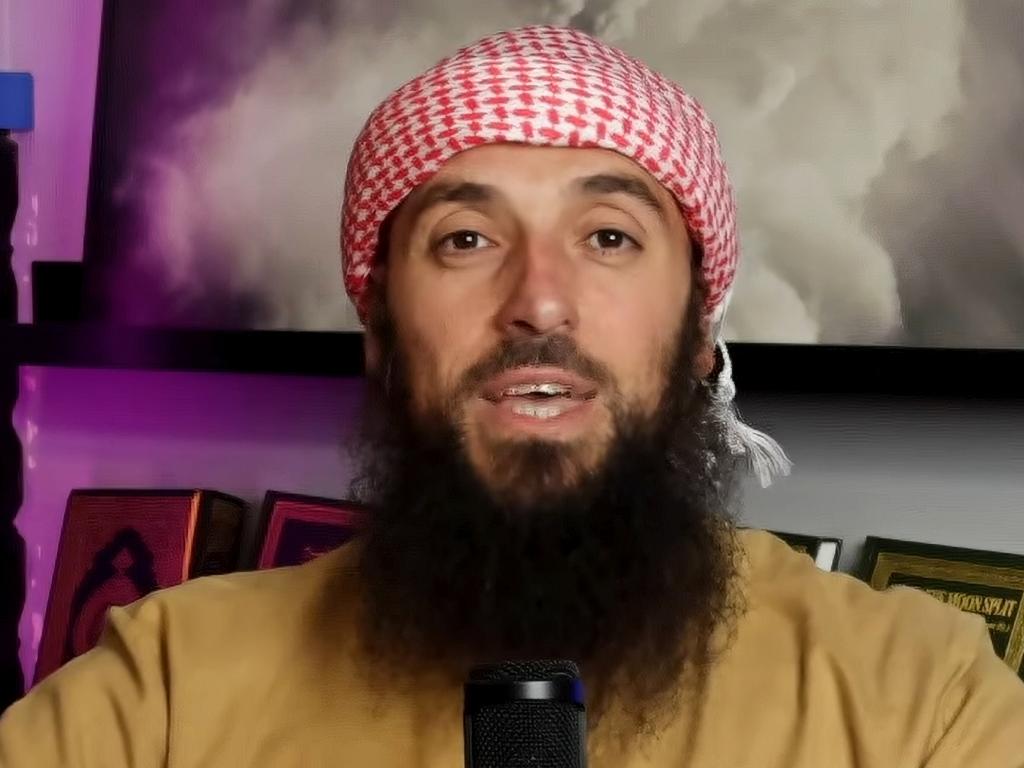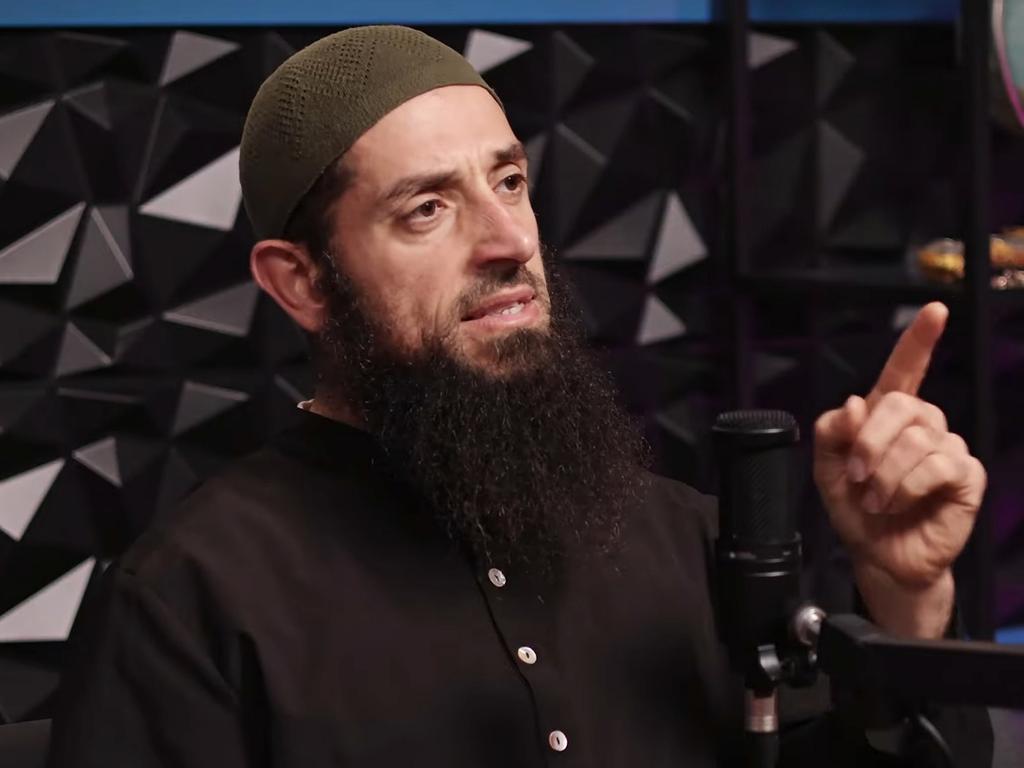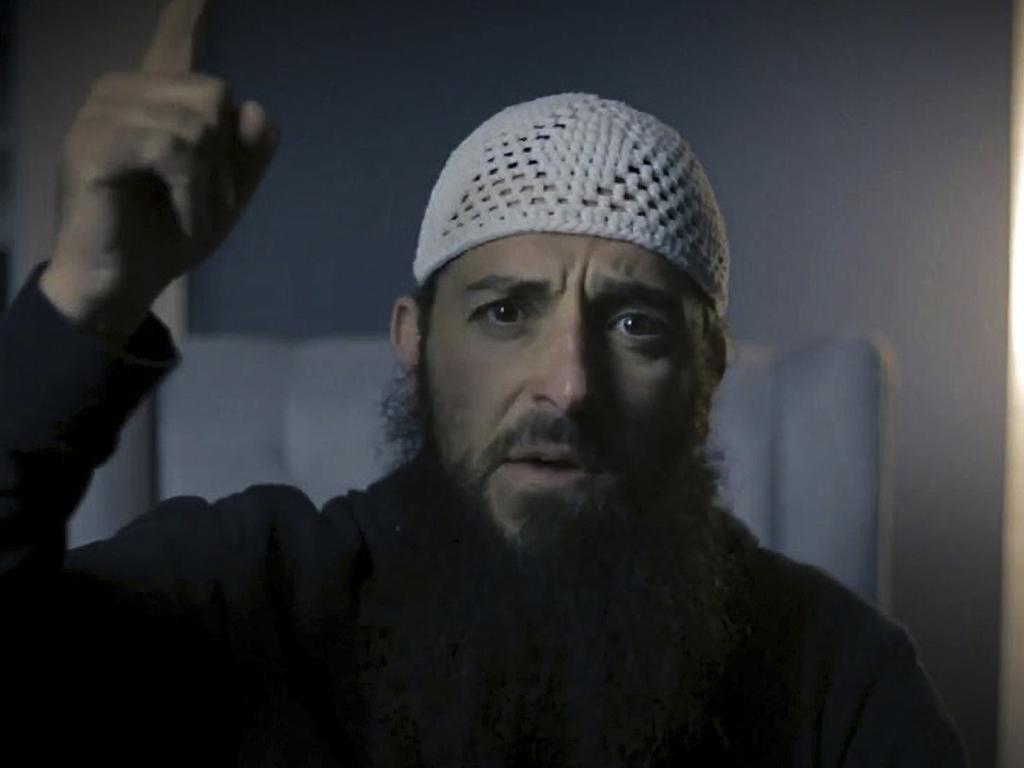Jewish leaders take radical cleric Wissam Haddad to court amid inaction
The country’s peak Jewish body has taken a radical cleric to the Federal Court after a slew of alleged anti-Semitic sermons that called the community ‘vile and treacherous people’.
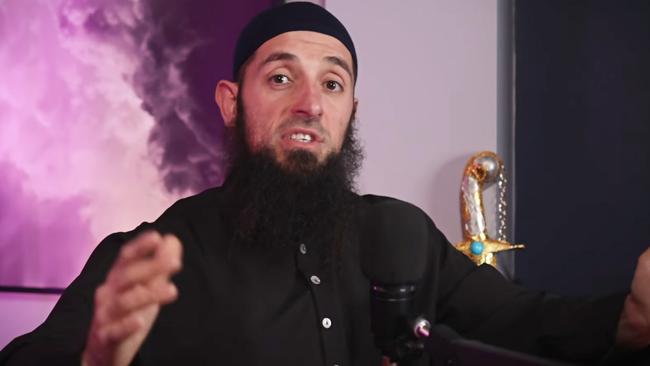
The country’s peak Jewish body has taken a radical cleric to the Federal Court after a slew of sermons referring to the Jewish community as “vile and treacherous people” and featuring anti-Semitic tropes.
The legal action is an example of the escalation of testing how, and whether, hate speech can be prosecuted in Australia.
The action comes after state and federal police recently laid charges against people who waved the flag of listed terror group Hezbollah, and high-profile restaurateur Alan Yazbek for displaying the Nazi swastika symbol.
On Friday, the Executive Council of Australian Jewry instigated proceedings in the Federal Court against extremist preacher Wissam Haddad, also known as Abu Ousayd, and his Bankstown-based Al Madina Dawah Centre.
The Australian in January revealed how the ECAJ had lodged a vilification complaint with the country’s human rights body against the preacher and the Bankstown centre, given perceived police inaction and an inability to lay charges, partly due to NSW’s “toothless” hate-speech criminal provisions.
The proceedings are made under part IIA of the Racial Discrimination Act – which outlaws offensive behaviour based on racial hatred – and brought to the court by the ECAJ’s co-chief executive, Peter Wertheim AM, and deputy president Robert Goot AO SC.
Mr Wertheim said attempts at mediation between the parties at the Australian Human Rights Commission had failed and that the court move was a last resort forced upon the Jewish community and its leaders.
“We have commenced proceedings to defend the honour of our community, and as a warning to deter others seeking to mobilise racism in order to promote their political views,” he said.
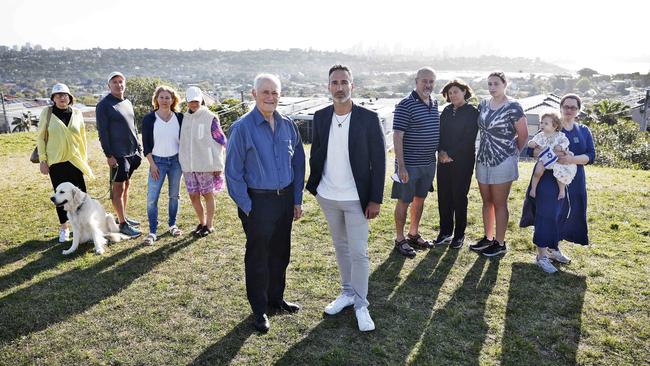
Among other things, the ECAJ is seeking declarations that Mr Haddad and his centre contravened section 18C of the Racial Discrimination Act, injunctions to remove the sermons from the internet, and an order that the cleric refrain from publishing similar speeches in future.
Mr Wertheim and Mr Goot are also seeking publication of a “corrective notice” on the centre’s social media pages and costs, although no order for damages or monetary compensation is sought by the ECAJ.
Among other things, Mr Haddad, or speakers at his Al Madina Dawah Centre, have called Jewish people “descendants of pigs and monkeys”, recited parables about their killing, described them as “treacherous people” with their “hands” in media and business, encouraged jihad, and urged people to “spit” on Israel so Israelis “would drown”.
In most cases, he has claimed that he was referring to or reciting Islamic scripture.
The ECAJ separately filed a vilification complaint at the AHRC against Sheik Ahmed Zoud, who said Jewish people “ran like rats” from Hamas in the October 7, 2023 attacks.
That conciliation process remains ongoing but could be exhausted soon, and The Australian understands the ECAJ could file separate proceedings at the same court against Mr Zoud and his As-Sunnah mosque in Lakemba.
Mr Wertheim said Australia was a “multicultural success story” with different faith and ethnic communities living in “harmony and mutual respect”, and that the court move against Mr Haddad was to protect the Jewish community, but also the country’s social harmony.
“We are all free to observe our faith and traditions within the bounds of Australian law, and that should mean we do not bring the hatreds, prejudices and bigotry of overseas conflicts and societies into Australia,” he said, adding that the ECAJ had “no alternative” than to pursue court action.
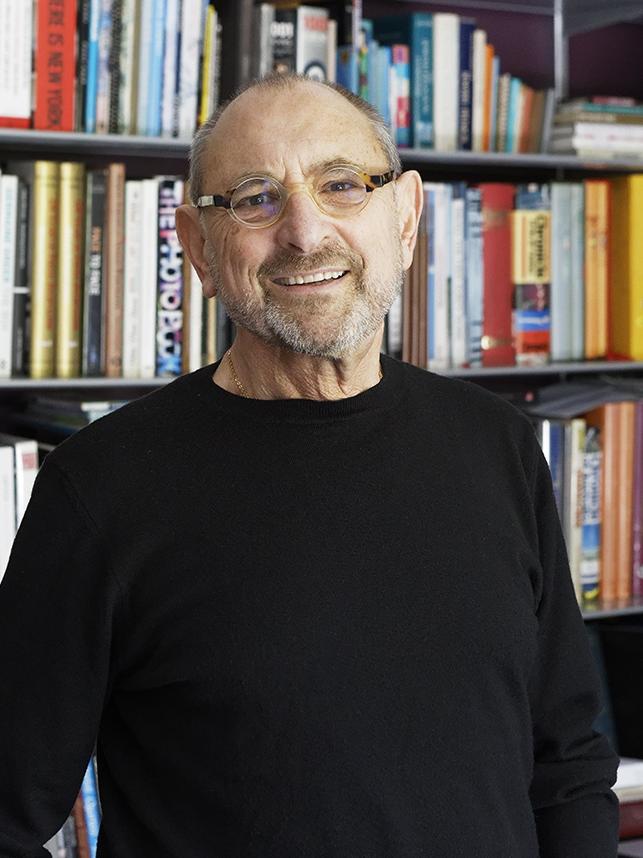
“Maintaining and strengthening social cohesion is the role of governments and government agencies, but lately they have failed us. It should not fall on our community, or any other community, to take private legal action to remedy a public wrong, and to stand up to those who sow hatred.”
Federal and state political leaders criticised that “policing” had fallen on the shoulders of Jewish leaders, with opposition home affairs spokesman James Paterson calling it “profoundly unjust”, saying the Albanese government had “vacated the field”.
“Incitement to violence against another community is a crime and it should be enforced through criminal proceedings,” Senator Paterson said.
“If we had strong leadership from our Prime Minister, and if police enforced the law, the Jewish community never would have been left to fend for themselves like this amid an unprecedented anti-Semitism crisis.”
NSW senator Dave Sharma said he was “appalled” that a community organisation had been forced to bring private legal action, “not only to protect its own members but to uphold values and norms we all cherish”.
“That the ECAJ has been forced to take matters into its own hands demonstrates just how weak and conflicted this government is,” he said, adding that Australian values and social cohesion must be “fought for”.
NSW Upper House deputy president Rod Roberts said no religious or ethnic community should be having to do “their own policing”.
“Regardless of which community, it should not be their role and they shouldn’t have to do it,” the former police officer said, adding that Mr Haddad’s “inflammatory” comments harmed society as a whole.
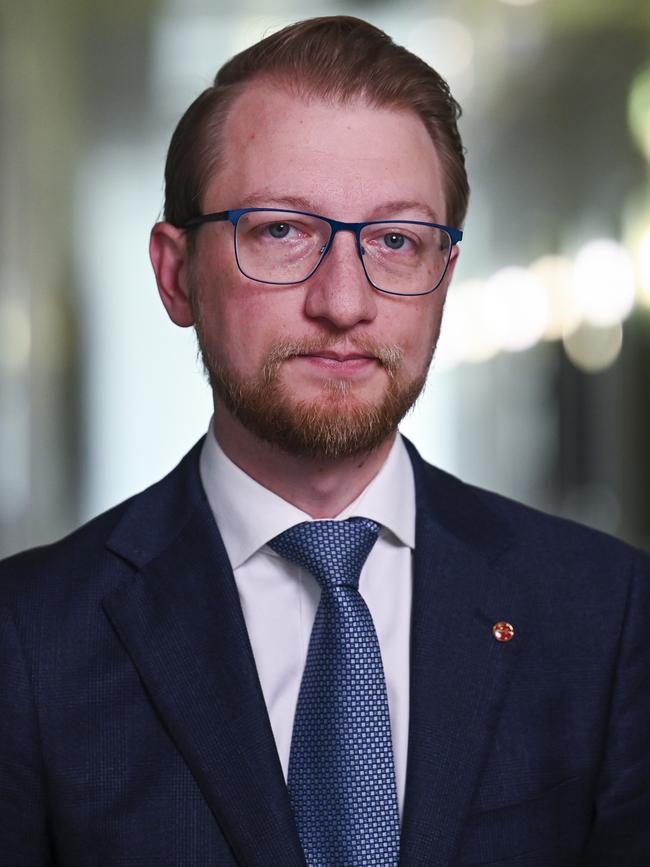
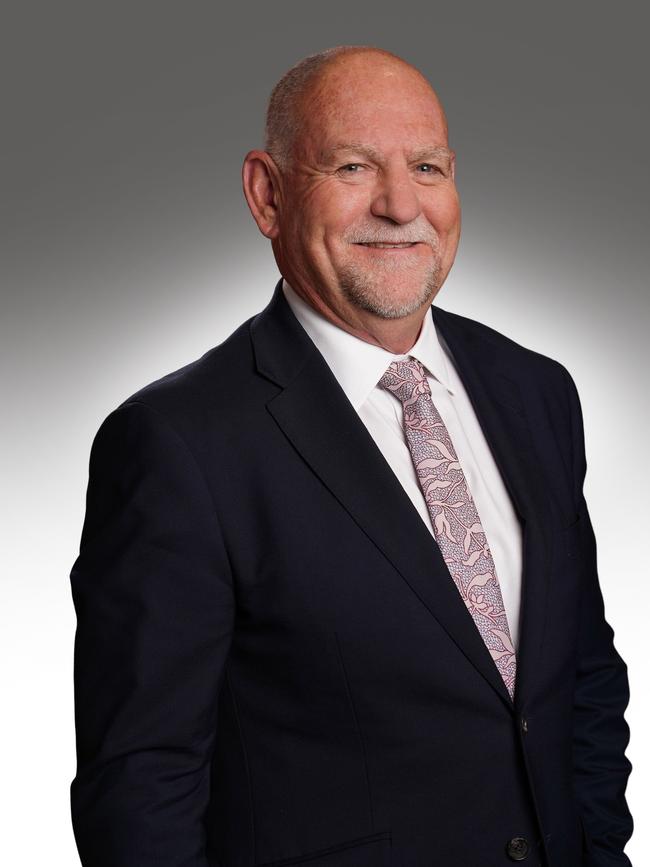
Since the onset of the Israel-Hamas war on October 7 2023, debate has raged as to whether law enforcement agencies have the legislative tools to clamp down on hate speech.
In the past few weeks, police have successfully charged people under legislation outlawing support for terrorist groups and Nazi symbols, and Home Affairs Minister Tony Burke has cancelled the visas of American speakers Khaled Beydoun – for calling October 7 a “good day” – and extremist influencer Candace Owens.
“Non-direct” hate speech, however, has been harder to prosecute, given the narrow and high thresholds of both state and commonwealth legislation that outlaw very specific calls to violence, failing to capture hatred or broad incitement against an ethnic or religious community.
NSW’s hate-speech provisions, enclosed in Section 93Z of the state crime code, are subject of a Law Reform Commission review, given operability concerns.
Faith NSW chief-executive officer Murray Norman said Section 93Z had “proved ineffective and impotent”, adding that although its enactment was “well meaning” the provisions were “clearly not serving its purpose” to capture and prosecute hate speech.
Attempts to contact Mr Haddad’s legal representatives proved unsuccessful on Monday.


